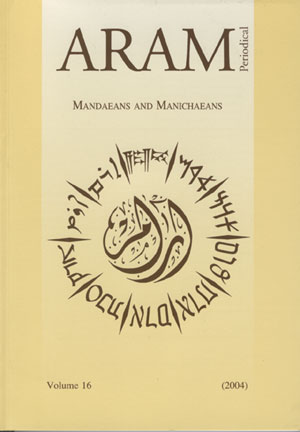 previous article in this issue previous article in this issue | next article in this issue  |

Preview first page |
Document Details : Title: Yahia as Mandaean Rasul? Subtitle: Some Thoughts on Islam's Influence on the Development of Mandaean Literature Author(s): HART, Jennifer Journal: ARAM Periodical Volume: 22 Date: 2010 Pages: 171-181 DOI: 10.2143/ARAM.22.0.2131036 Abstract : The presence of John the Baptist, or Yahia as he is commonly known to the Mandaeans, in Mandaean literature has long been a focal point of discussions about the Mandaeans and their religious identity. It is the Mandaean affinity for Yahia that has earned them the misnomer 'St. John’s Christians' and it is one of the primary reasons that initial academic interest in the Mandaeans concentrated on what Mandaeism might reveal about the origins of Christianity. But as it became apparent that the seemingly Christian material in Mandaeism, including the passages about Yahia, mostly postdated the New Testament the question changed from what does the Mandaean Yahia divulge about Christianity to how and why did Yahia assume such a prominent role in Mandaean religion? Perhaps somewhat heretically I would like to propose that the answer to this question has little to do with any relationship Mandaeism might have with Christianity, but rather that the key to understanding Mandaean literature about Yahia and his importance to Mandaeism as a whole lies with Islam. An explanation for who and what Yahia is, the way in which he appears in Mandaean literature and his contributions to the shaping of Mandaeism as a religion are made clear when the Mandaean narratives about Yahia are placed in context with ideas from Islamic theology, especially those connected to the Islamic concept of prophethood. An analysis of Yahia that takes into consideration the qualities that Islam associates with the role of a prophet demonstrates significant parallels between literary representations of Yahia and Islamic notions of prophethood and not just any notion of prophethood but particularly those qualities which Islam assigns to its highest order of prophet, the rasul. There is considerable evidence within Mandaean literature to suggest that Yahia’s character models elements of the Islamic conception of the rasul. In the paper that follows I will present three examples from the imagery that Mandaean literature uses in the portrayal of Yahia which are also defining aspects of a rasul in Islam. |
|


